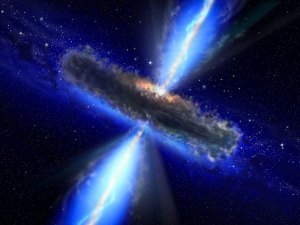The World Will End in Ice
I’m fascinated by the end of the universe. It’s a pretty interesting mental exercise, theorizing about how everything might end (and us with it), especially since I definitely won’t be around to see any of those theories come to fruition. Of course, I have a favorite theory, that being the “Heat death of the universe”. It’s my favorite, because it combines two really cool things, the end of existence and entropy. The end of existence is, I think, pretty self-explanatory, but the term entropy may be unfamiliar to some.
Entropy is a concept in physics that is the measure of the amount of decay or disorganization in a system as the system moves continually from order to chaos. According to the Second Law of Thermodynamics, in general, the total entropy of any system will not decrease other than by increasing the entropy of some other system. Hence, in a system isolated from its environment, the entropy of that system will tend not to decrease. Since a finite universe is an isolated system, the Second Law of Thermodynamics states that its total entropy is constantly increasing.
Here’s a video explaining entropy in a British accent.
In our universe, then, as entropy increases, it spreads out heat. Just as a cold object next to a hot one will warm up due to heat transfer, warm things in our universe, i.e. every star, including our Sun, is radiating heat out into the colder universe. However, this won’t go on forever, as eventually, through both the burning of fuel and heat dispersion, the heat will have spread out so much that there won’t be cooler and warmer objects. This is the basis of the “heat death” theory. Everything will be the very same, extremely cold, temperature. At that point, the universe will have attained a “steady state” in which there will be no energy differences and no ability to extract work from the universe. Gravity itself plays a large role in entropy increase, because it causes matter to coalesce into stars, which in turn become black holes, where the entropy is proportional to the surface area of the black hole’s event horizon.
Artist’s rendition of a black hole
This is important because, if they are totally effective matter and energy traps, that makes them the likely termini of all entropy-increasing processes. Luckily for all of us, however, heat death is projected to take at least 10100 years (this being the decay time of a supermassive black hole of approximately 1 galaxy-mass).
On a cheerier note, the heat death model does have its detractors. The main argument against it is that, although entropy does increase in our model of our expanding universe, the maximum possible entropy that can exist is also increasing. This results in an ever-widening entropy gap that pushes the universe farther away from heat death. Ultimately, it is just difficult to make any accurate prediction of large-scale thermodynamics.
Of course, even if heat death won’t occur, there are still plenty of other ways for the universe to get us in the end…

